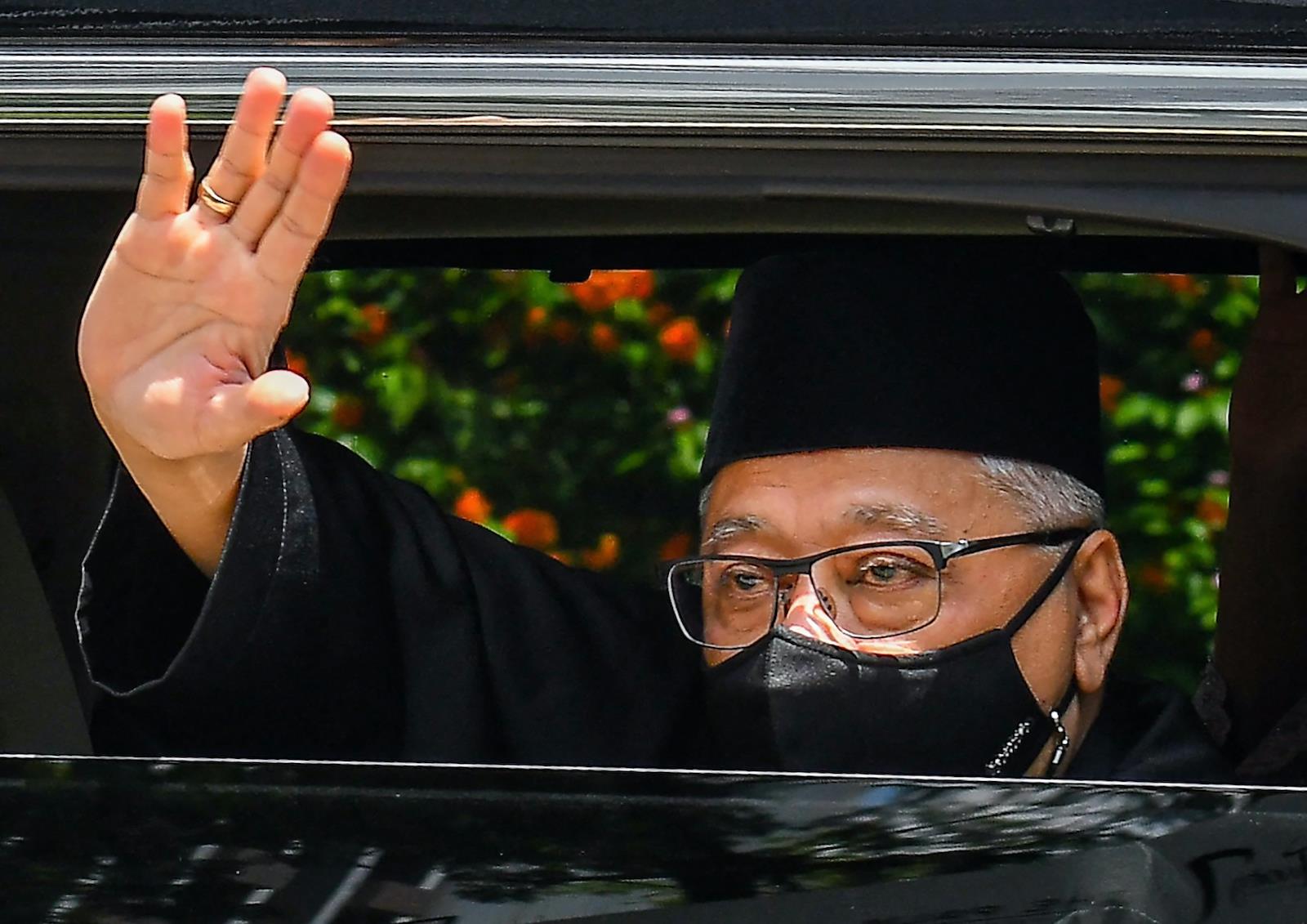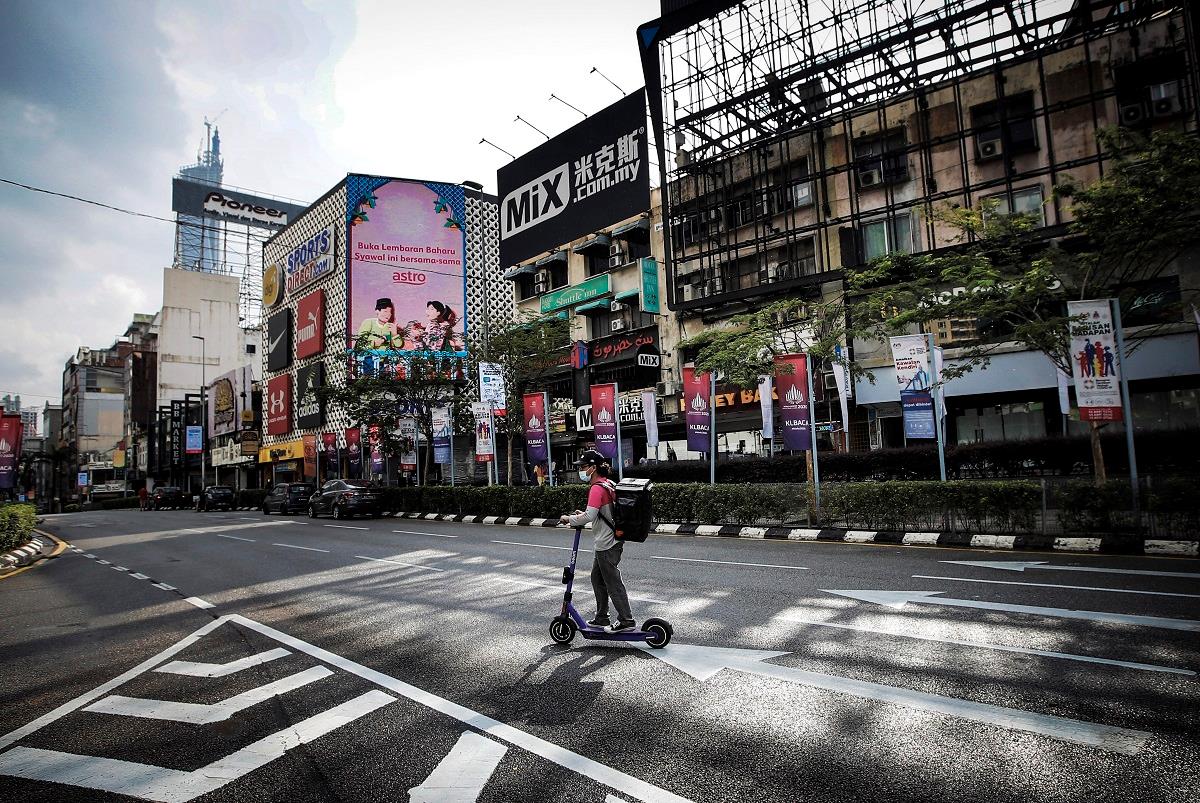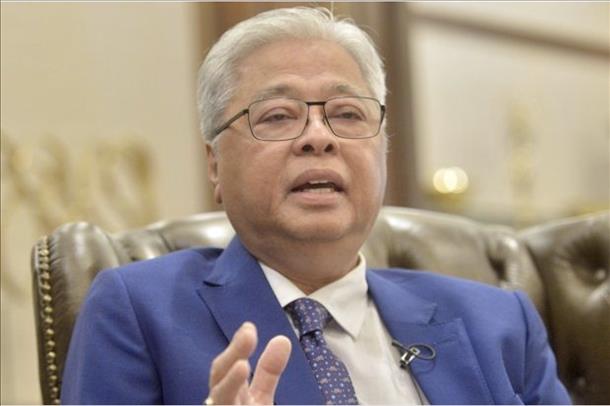
Malaysia's Ismail reverts to a race-based past
(MENAFN- Asia Times) SINGAPORE – A historic bipartisan agreement between Malaysian Prime Minister Ismail Sabri Yaakob's government and the opposition Pakatan Harapan (PH) coalition will be put to the test on Thursday (October 7) when lawmakers vote on the newly installed administration's first major policy initiative.
Ismail tabled his government's five-year road map, known as the 12th Malaysia Plan, in parliament on September 27. The plan calls for 400 billion ringgit (US$95.53 billion) in spending on development projects including new highways and rail networks, affordable housing, as well as improvements in health, education and broadband connectivity.
The ambitious blueprint aims to reverse a pandemic-induced downturn while targeting high-income nation status by 2025, breaking free of the so-called middle-income trap that economists have long-regarded Malaysia as being stuck in, with its once high per-capita growth rate stagnating for at least a decade.
But a key plank of Ismail's plan calls for dialing up of race-based affirmative action policies that critics have long argued are overdue for reform, a move that has been panned by economists, industry groups and opposition lawmakers who say such measures will only benefit“cronies” instead of poor and working-class ethnic Malays.
Opposition leader Anwar Ibrahim was among those who criticized preferential rules aimed at empowering bumiputra, a term for ethnic Malays and indigenous peoples meaning“sons of the soil,” at a parliamentary debate last week. It is unclear how vigorously his PH coalition will oppose the measures – if at all – when voting takes place on October 7.
Affirmative action policies targeting ethnic Malays began some 50 years ago with the New Economic Policy (NEP), which sought to remedy the then vast inequality between the Malays – who at the time comprised nearly 50% of the population but held only around 3% of the country's wealth – and comparably prosperous ethnic Chinese minorities.
Bumiputras today account for nearly 70% of multi-ethnic Malaysia's population, while combined Chinese and Indians represent around 30%. Affirmative action is constitutionally enshrined, endowing ethnic Malays with a special position relative to other groups, a fact that some argue has had a corrosive impact on the country's larger social fabric.
As part of a memorandum of understanding (MoU) signed on September 13 to bolster political stability amid the Covid-19 pandemic, PH agreed not to obstruct the government on critical votes in parliament in exchange for Ismail's administration agreeing to implement several policies and institutional reforms sought by the opposition.
The MoU, which followed a decree by Malaysia's king calling for more bipartisanship, doesn't obligate PH to support the government, which is widely expected to greenlight the 12th Malaysia Plan with its four-seat ruling majority.“This is a non-contentious vote,” said one opposition lawmaker, implying the plan's passage is a foregone conclusion.

Ismail Sabri Yaakob leaves his house to takes the oath of office as prime minister on August 21, 2021. Photo: AFP / Malaysian Information Department
Ismail's administration, which is led by the United Malays National Organization (UMNO) and two other political parties open exclusively to ethnic Malay Muslims, could tone down its race-based proposals in the spirit of bipartisanship amid stinging criticism from various quarters – but with a general election expected next year, experts say it likely won't.
“The political reality is the government is dominated by three Malay parties so it's not surprising to see the government strengthening the bumiputra agenda,” said Adib Zalkapli, Malaysia director with strategic advisory firm BowerGroupAsia.“Political reality prevents this government […] from introducing any major economic reforms.”
Under a new“safety-net” framework introduced under the 12th Malaysia Plan, shares and companies owned by bumiputra can only be offered to other ethnic Malay-owned consortiums, companies or individuals, with the aim of ensuring that bumiputra-held equities remain in the hands of the country's predominant ethnic group.
The government also intends to enhance the role of state-owned enterprises in becoming enablers for bumiputra equity ownership, with plans to prioritize sales of“non-strategic” assets that government-linked companies (GLCs) and government-linked investment companies (GILCs) intend to sell to ethnic Malay-owned business entities.
“The most striking element of the 12th Malaysia Plan is that it seems to be bringing back an ethno-nationalist agenda, which I think at a more fundamental level will really weaken Malaysia's competitiveness,” said Bridget Welsh, an honorary research associate at the University of Nottingham Malaysia Asia Research Institute.
“At the same time, it will also exacerbate Malaysia's declining comparative advantage. The fundamental reality is that the economy itself needs to be reformed, but the reforms that are being brought in are really a step to the past, not a step to the future. It doesn't make Malaysia's economy a more competitive, attractive place for investments,” she added.
Economists have raised various concerns about the government's proposal to restrict bumiputra share transactions, with some arguing the measure will limit the pool of investors needed to deepen liquidity for active trading, and in turn render bumiputra stocks riskier and less attractive than those traded on the open market.\
In a speech to parliament on September 27, Ismail said total ethnic Malay ownership of corporate equity stood at 17.2% as of 2019, short of a 30% minimum target initially set by the NEP introduced in 1971. Non-Malays hold a higher 25% share of Malaysian equity, while 45.5% is held by foreign entities and 12.3% are nominee shares.
As an aside, Jomo Kwame Sundaram, a prominent Malaysian economist, recently argued that the 17.2% in bumiputra equity is, in fact, worth closer to 40% in terms of actual market prices of assets held by the community, and said the government's proposed limitations on share transactions will have“unintended perverse side effects.”
Although the NEP was originally meant to last only two decades, race-based affirmative action measures remain firmly entrenched with ethnic Malays given preferential treatment in local universities and for scholarships, access to government contracts and procurement, business licenses and loans, as well as employment in the civil service.

An UMNO rally in 2017. Image: AFP
Though the policy is credited with creating a prosperous Malay professional middle class, critics say a large part of government assistance under the NEP was ultimately channeled to well-connected businessmen who enriched themselves through government patronage and rent-seeking, often selling permits and licenses to non-Malays for a fast profit.
The NEP's implementation ultimately created deep resentment and a sense of institutionalized discrimination among non-Malay communities, sentiments that have led to a“brain drain” in which highly trained or qualified non-Malay individuals seek opportunities overseas, with many emigrating to countries like Singapore and Australia.
Observers say such patterns of emigration have undermined Malaysia's efforts to move up the value chain by upgrading its economy from being labor-intensive to knowledge-driven. That, in turn, has undermined the drive to achieve the economic growth rates required to reach high-income status, as the government's own five-year road map envisions.
The World Bank defines a high-income economy as one with gross national income per capita of $12,696 or more. As of last year, average per capita income stood at 42,500 ringgit ($10,150), around 20% lower than the high-income threshold that Malaysia intends to exceed by 2025, alongside a goal of eradicating abject poverty.
“The reality is that the solutions to the problems that are being proposed are really gateways to more corruption, more patronage and are used as a political tool as opposed to a socio-economic tool to engender social mobility and to kickstart an economy that has been hit hard during an unprecedented period of lockdown,” said Welsh.
A vicious third-wave of Covid-19 infections forced Malaysia into a strict lockdown in June from which it is only now emerging. Authorities plan to reopen more of the economy in October, when 90% of adults are expected to be fully vaccinated. Around 88.4% of eligible adults have thus far received two vaccine doses, according to official data.
Infections have begun to taper down with daily cases this week falling below 10,000 for the first time in nearly three months. Interstate travel is set to be permitted once curbs are eased, along with the reopening of theme parks and entertainment venues as the country opts to emulate Singapore's strategy of treating Covid-19 as an endemic disease.
Ismail has said his administration's policies will be geared toward spurring an economic recovery, with growth expected to be back on track by 2023. Under the 12th Malaysia Plan, authorities are projecting an average annual growth of 4.5% to 5.5% for the years 2021 to 2025, higher than the central bank's own growth forecast for this year.
In August, Bank Negara Malaysia downgraded its full-year gross domestic product (GDP) growth target for 2021 from an initial 6.0% to 7.5% range down to 3.0% to 4.0%. That followed a quarter-on-quarter contraction of 2% in the second quarter, with third quarter figures likely to contract further owing to tightened Covid-19 curbs.
Fitch Ratings' research unit has revised its full-year growth projection to 0%, down from 4.9% initially, saying in August that real GDP growth figures fell far below its previous expectations, which compounded its view that Malaysia's third wave of Covid-19 infections would lead to a stagnant economy for the rest of 2021.

A food delivery worker rides along an empty street in downtown Kuala Lumpur, Malaysia on May 26, 2021. Photo: AFP via EyePress Newswire / FL Wong
Authorities hope to stoke growth with higher spending under the 12th Malaysia Plan, which at 400 billion ringgit is 54% bigger than the 11th Malaysia Plan unveiled in 2016 that budgeted 260 billion ringgit ($62 billion). To fund the plan, Finance Minister Tengku Zafrul Abdul Aziz has said the government will have to pare down debt and widen the tax base.
Zafrul maintains that though Malaysia remains committed to fiscal consolidation measures, meaning to reduce national debt levels as a proportion of GDP, the government will be tabling a motion to raise its statutory debt limit from 60% to 65% of GDP given the need for spending flexibility amid the pandemic-induced economic crisis.
It will be the second time in as many years that the government has sought to raise its debt ceiling, with the limit increased from 55% to 60% of GDP last year. The fiscal deficit for 2021 is expected to reach between 6.5% and 7%, higher than the 5.4% initially estimated and nearer to the 6.7% deficit seen during the global financial crisis more than a decade ago.
“Investors will be keen to see the government setting out a credible pathway for fiscal consolidation and the steps needed to achieve that, though are unlikely expecting dramatic tax rises or spending cuts soon as that would risk the economic recovery,” said Peter Mumford, a Southeast Asia analyst with the Eurasia Group consultancy.
Mumford told Asia Times that the 12th Malaysia Plan“would not have much impact on short-term investor confidence” because both foreign and domestic investors are focused on more immediate political developments and policy decisions following Ismail's elevation to the premiership in August amid months of infighting within the ruling coalition.
He added that with a general election on the horizon in 2022,“it is inevitable that the government is flashing its ethno-nationalist credentials. This will not go unnoticed by foreign investors though and will remain a concern/deterrent at a time when Malaysia needs to attract more foreign direct investment to bolster its economic recovery.”

Legal Disclaimer:
MENAFN provides the
information “as is” without warranty of any kind. We do not accept
any responsibility or liability for the accuracy, content, images,
videos, licenses, completeness, legality, or reliability of the information
contained in this article. If you have any complaints or copyright
issues related to this article, kindly contact the provider above.


















Comments
No comment